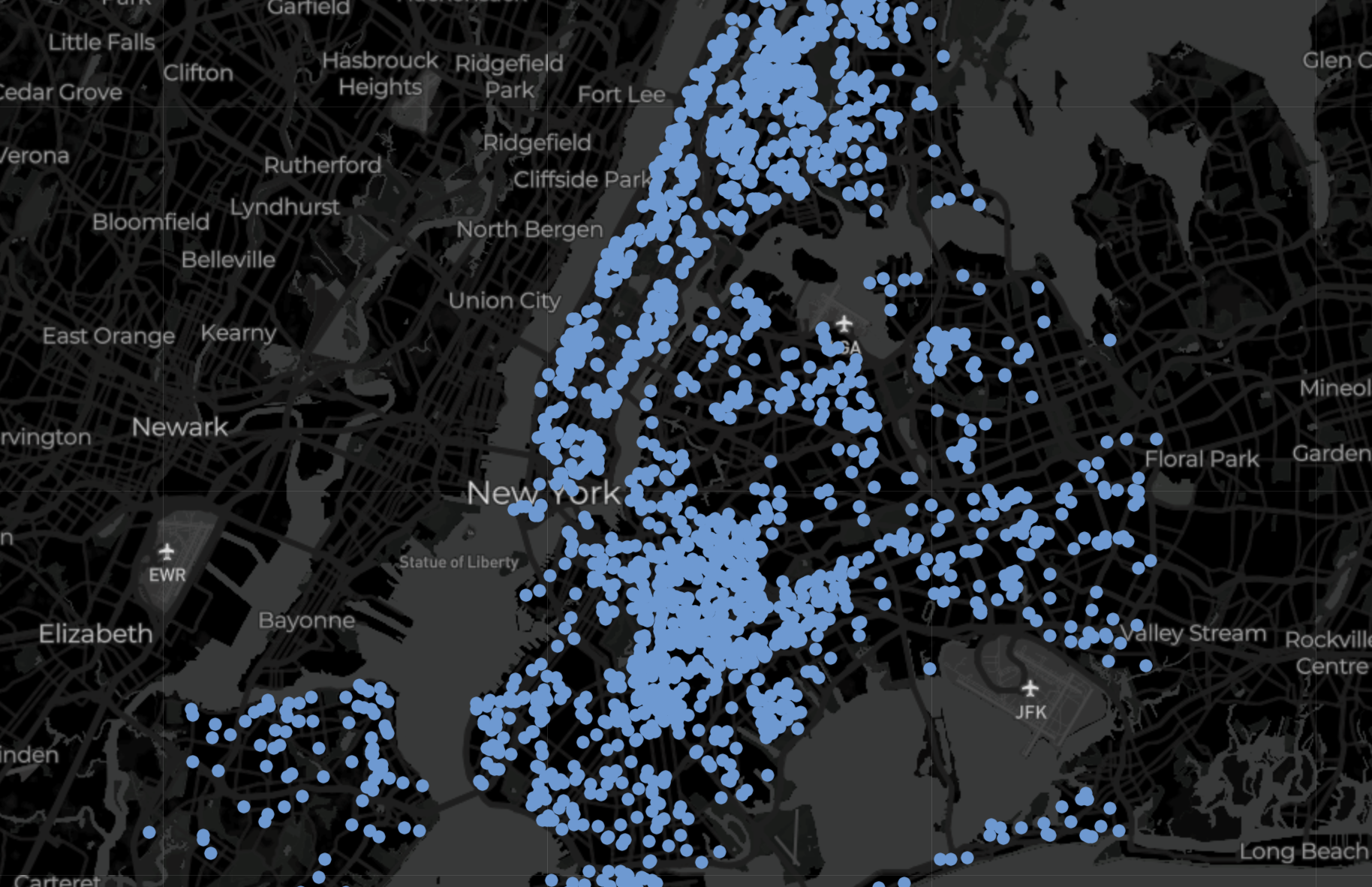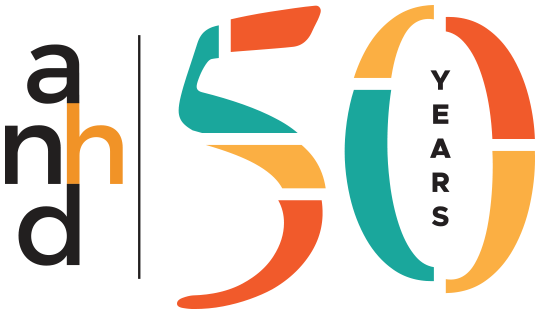
ALBANY: Don't Set us Back on Tenant Protections
It's been a long 4 ½ years since June, 2019 when the Housing Stability and Tenant Protection Act (HSTPA) transformed New York City’s legal housing landscape, and the daily lives of millions of rent-stabilized tenants. So long that there seems to be some amnesia starting to form about exactly why the tenant movement, with the support of our elected officials, fought for decades to win HSTPA.
Prior to 2019, rent-stabilized tenants faced widespread and intensive harassment. This harassment was not just a result of malicious landlords, but a response to profit incentives baked directly into the structure of the old rent stabilization laws - baked in over the course of decades by a landlord lobby that had managed to turn a robust system for ensuring affordability, stability, and basic rights for tenants into a pile of swiss cheese. Under the old rent laws, landlords were entitled to vacancy bonuses whenever an apartment turned over to a new tenant. During vacancies, they were also able to claim increases for Individual Apartment Improvements (IAIs) with almost no oversight or accountability. These loopholes created a clear incentive for landlords to drive out existing tenants - especially longtime tenants whose rents were often lower - in order to increase profits. Some activity was so egregious that it led New York State Attorney General Tish James to file a lawsuit in May 2019 that said the the landlord’s “business model was ‘uncover[ing] value’ in rent-stabilized apartments by, among other things, undertaking IAIs in order to deregulate vacant units using high-rent deregulation.”
ANHD strongly opposes S6352/A6772, or the“Local Regulated Housing Restoration Adjustment,” legislation being pushed by CHIP, RSA and REBNY and others in the real estate lobby, which simply recreates the old harassment incentive system under a new guise. The bill would allow landlords to capture windfall profits by removing long-term tenants and replacing them with higher-paying renters – and in turn place the nearly 1.3 million New Yorkers that live in rent-stabilized housing at risk of displacement.
The bill allows landlords to “reset” aka raise the rents to “Fair Market Rents” (FMR) aka market rates when renting an apartment that goes at least 10 years without a vacancy. This law immediately puts a target on the back of every household that’s been in their apartment for 10 or more years – and we’re talking about over half of rent-stabilized households, or 523,471 families - at immediate risk.
Analysis from the recent Pratt Center report of what those rent increases will actually look like should alarm us all:
Claiming that the new rent will be negotiated by the landlord and the tenant is a red herring. In a housing market where vacancy is less than 1% for rent-stabilized apartments, landlords hold all the cards, and tenants are already routinely paying more than a third or even more than half of their incomes towards rent. The proposed formula for setting new rents will, in practice, cause huge increases in our precious and already-dwindling affordable housing stock.
This Real Estate lobby’s bill is a recipe for increased tenant harassment, displacement, and homelessness, and even faster loss of affordability.
Many of ANHD’s members own and operate buildings and we are mindful about the realities of increasing costs of operating an affordable housing unit. Modest adjustments to the IAI cap – based on demonstrated need and not profit motive – as part of a broader package of affordable housing and tenant protection measures, is a conversation we can have with those operating in good faith.
The State should pass the Housing Access Voucher Program and these vouchers could be made available for units or buildings facing hardship, while still ensuring affordability. And amending Section 610 of the Private Housing Finance Law would allow for owners to submit a hardship application to HCR where they can charge up to the fair market rent as long as a voucher holder resides in the unit.
But recreating a landscape of routine tenant harassment and hiking up rents by thousands of dollars is a non-starter. We can’t afford to go back to the bad old days.
Sign up Form
Welcome the 2024 CCL Advanced Organizing Seminar & Intensive Cohort!
Since its launch in 2009, the Center for Community Leadership has been a consistent and adaptable space supporting the organizing ecosystem in NYC. CCL’s cohort-based programs are an invaluable space where organizers can come together to develop and deepen their analysis and organizing practices.
The CCL Advanced Organizing Seminar and Intensive is a 6-month program for experienced organizers. Featuring monthly sessions for Seminar participants along with personalized reflection and coaching sessions for those in the Intensive track, the program offers a key space for organizers to read, reflect, and explore ways to deepen their analysis and practice of community organizing.
This year’s Advanced cohort includes 11 organizers committed to building, sustaining, and leveraging community power while nourishing and honoring trust, joy, and collective learning and action. They are organizers guided by a deep belief in the power of organizing to change lives and conditions, including their own. They are folks supporting and supervising newer organizers in our Intro and Apprenticeship programs. They are CCL alumni along with folks joining CCL for the first time.
As they gathered in person for the first time this January, the conference room filled with laughter, music, careful listening, and heartfelt sharing. The mix of people who have known and worked with each other for years along with people meeting for the first time - facilitated with tremendous skill and intention by our instructor Susanna Blankley - created a ripe environment for peer learning and connection.
We're excited to see where they go over the next few months!
Meet our 2024 Advanced Organizing Cohort!
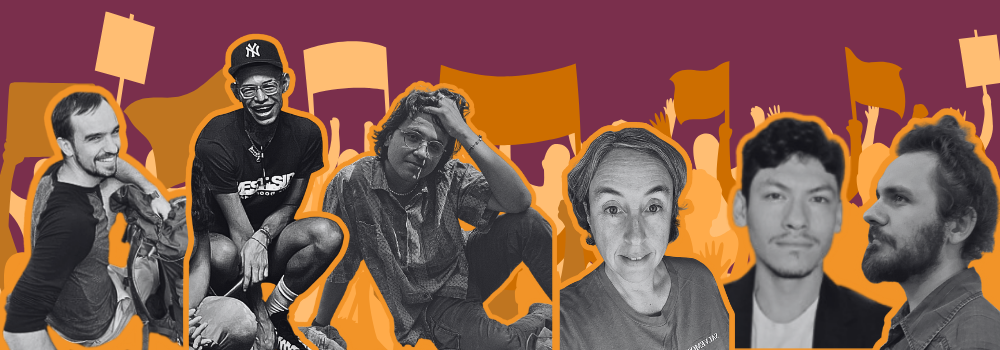
Bleys LaPierre, Goddard Riverside Law Project
Charlie Urban-Mead, Community Action for Safe Apartments (CASA)
Douglas Farrand, University of Orange / The HUUB, inc
Evy Viruet, Goddard Riverside Law Project
Gabriel Flores, Goddard Riverside Law Project
Jodie Leidecker, Cooper Square Committee
Jorgy Flecha, Housing Conservation Coordinators (HCC)
Juan Giraldo, Community Action for Safe Apartments (CASA)
Khamarin Nhann, Mekong NYC
Shen’naque Butler, Banana Kelly Community Improvement Association
Zaki Michael, The HUUB, inc
About Them
Charlie Urban-Mead (he/him)
Community Action for Safe Apartments
Charlie grew up in upstate New York and attended college in New Haven CT, where he worked for several years after graduation. In 2021, he became involved with a group of rookie tenant organizers and supported several tenant associations and the eventual launch of the Connecticut Tenants Union. Together, CTTU tenants have won repairs in long-neglected units and begun meeting with elected officials about improving towns' and cities' tenant protections. Last summer, he moved to Brooklyn and began working with tenants in the Southwest Bronx as an organizer at CASA. When he’s not organizing, he’s usually cooking or playing soccer in the park.
Evy Viruet (she/her)
Goddard Riverside Law Project
Evy’s story goes back to 2008 with the Northwest Bronx Community Clergy Coalition. New York City had public schools closing around that time, and her son's middle school was one of those schools. She started organizing with parents and teachers in New York City to stop the school closures. The organizing tactics were successful and schools were able to stay open. Evy was hired in 2016 to organize small businesses in the Bronx, especially during the Kingsbridge Armory Development. She also did tenant organizing and a string of other organizing projects. In 2022, she transitioned to Goddard Riverside Law Project, also as a tenant organizer. Taking her organizing roots from the Bronx into Manhattan was a challenge for her personally. However, what she has learned throughout that transition is, it doesn't matter where you live, how much you pay, everyone is going through a housing crisis.
Jodie Leidecker (she/her)
Cooper Square Committee
Jodie was a tenant trying to mind her own business in NYC, but conditions were so poor in her building (ex. she almost drank a roach!) that she had to find someone to help her. She started attending FTC meetings, but had an attitude like “she’ll just get her apartment issues taken care of and get back to her life.” But FTC didn't take that approach, and she soon learned that housing is a deeply unjust system in NYC in particular, and that the roaches and mice in her building were actually symptoms of a weak and broken political system! So she applied for a job as an organizer at Cooper Square Committee and started learning how to organize.
Gabriel Flores (he/him)
Goddard Riverside Law Project
Gabe is a tenant organizer with Goddard Riverside Law Project. He got interested in community organizing from his experience growing up on the Southside of Chicago when he saw his own community give back so much to him after his family lost everything in a house fire. He saw the resilience and support his community gave to him and from then on he wanted to work to ensure that communities like his can use their power they have when they act collectively. Recently, Gabe has gotten his MPA in public & nonprofit management & policy with a specialization in advocacy and community action at NYU Wagner school of public service.
Bleys LaPierre (he/him)
Goddard Riverside Law Project
Bleys was born and raised in New York City, and as a second generation immigrant he got involved in organizing because he believes there is important work to be done in making sure everyone has the opportunity to live in safe and affordable housing.
Jorgy Flecha (he/him)
Housing Conservation Coordinators
Jorgy first started organizing in middle school with a local group named REBEL: Reaching Everyone By Exposing Lies. A teen-led group to teach others about the lies and deception of big tobacco companies. Since then, he has been committed to making his community a better place. He has gone on to fight for same sex marriage in his home state New Jersey, which led him to traveling nationwide to red states fighting for lgbt non discrimination laws. Currently, you can find him advocating for tenants rights within the New York City Housing Movement. Aside from organizing Jorgy is a dog dad to his miniature poodle Cotto and when he’s not organizing you can find him enjoying the island sun in his motherland of Puerto Rico.
Zaki Michael (he/him)
The HUUB, inc
Zaki is eager and excited to be a part of the Seminar. He is currently working as the new community and program organizer at HUUB Inc in Orange, NJ. He is a proud Orange, NJ native graduating from both Orange Middle School and Orange High School, class of 2010. In 2015, he graduated from Bloomfield College with a Bachelors of Arts degree in Psychology and a minor in Developmental Education. Since joining the HUUB, he has had the opportunity to help organize and facilitate a series of community voter registration tabling's within the city of Orange NJ. He is currently working to organize “Planning to Stay (P2S)”. This is a community-based working group that believes development is fundamental to the health and well-being of every city, and that it should improve the lot of the people and businesses already in a place, while also attracting new investment and resources. By mobilizing stakeholders in Orange, facilitating meetings, and organizing workshops around the future of the city, P2S aims to create a multi-scale, multi-system strategy that addresses economic stability, neighborhoods and the physical environment, education, food, community and social engagement, and healthcare.
Douglas Farrand (he/him)
University of Orange and The HUUB, inc
Douglas is a composer and musician who got pulled into organizing work by his love for the city of Orange and friends and family who have called this city home. He works with the University of Orange, a community organization and free people's urbanism school in Orange NJ, as a community organizer and co-director of the Music City program. From 2013-2019 he taught in and directed Sonic Explorations, a youth music education program in Orange’s east ward. He is also a founding member of LCollective, a Brooklyn-based experimental music collective with Teodora Stepancic, Assaf Gidron, and Jesse Greenberg, and have worked closely with percussionists Ryan Packard and Christian Smith, filmmaker Kelsey White, flutist and composer Margaux Simmons, poet & composer Porter James, bassist Jeff Weston, cellist and composer Gabriela Areal and others.
Sign up Form
Welcome the 2023-2024 CCL Organizing Apprenticeship & Introductory Course Cohorts
We’re excited to welcome the 2024 CCL Organizing Apprenticeship Cohort, a group of five New Yorkers committed to deepening their organizing skills and building community power throughout the city.
Piloting our latest iteration of the Apprenticeship this year, the CCL Organizing Apprenticeship is a 6-month training and support program for community members interested in learning about community organizing. Apprentices get foundational high-quality skills-building training while working with a host organization to gain on-the-ground community organizing experience and building relationships with fellow organizers.
This year’s cohort kicked off their Apprenticeship with a 3-Day Orientation with a deep dive into the theory and practice of power-building grassroots organizing and Base Building before joining the Introductory Course participants last week.
The Introductory Course, which began in late September, is a 10-month cohort-based training and support program designed for newer staff organizers seeking to develop foundational principles and skills. Together, the Apprenticeship and Introductory Course cohorts will continue their learning, deepening their understanding and practice of Base Building, Leadership Development, and Campaigns.
We’re honored to be working with such a passionate and caring group of people, committed to the deep work of solidarity and principled, effective organizing and movement-building.
Meet our 2024 Organizing Apprentices!
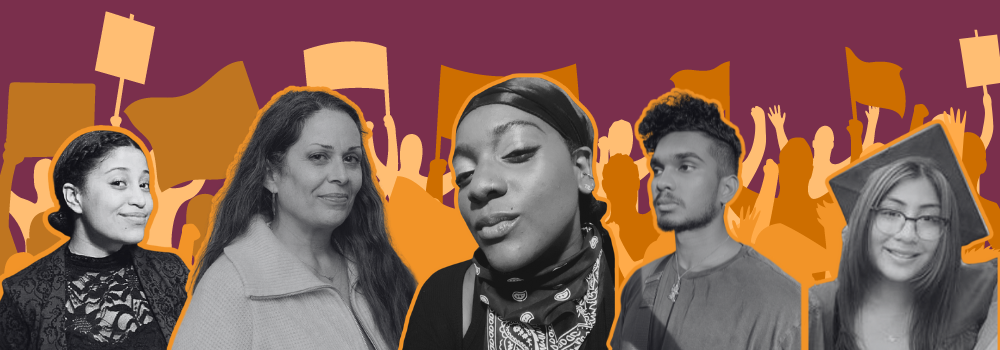
Matthew Sooknanan (he/him)
Host Organization: Chhaya Community Development Corporation
Born and raised in Brooklyn, Matthew has always been inspired to help strengthen his local community and the city at large. Matthew is currently a dual Political Science and Urban Studies major at Fordham University. Previously, he worked as an assistant teacher at the Stagg Street Daycare Center and interned at the Manhattan Borough President’s Office and at Chhaya. While at Fordham, Matthew is currently the President of the Fordham Humanitarian Student Union. In his free time, he loves taking long walks and meeting new people wherever he may.
Melanie Giler (she/her)
Host Organization: Catholic Migration Services
Melanie was born and raised in the South Bronx. Melanie is currently a Marketing student at CUNY Baruch College. She grew up surrounded by hardworking immigrants both inside and outside her home. Having witnessed the challenges that come with growing up in a neighborhood like hers, Melanie pushed herself to get involved in her community in 2019 and continued to serve through the height of the Covid-19 pandemic. Ever since then, she has worked alongside a few other organizations like We Stay/ Nos Quedamos and the Mexican Coalition, and is excited to continue this journey with communities outside of the Bronx.
Miriam Aristy-Farer (she/her)
Host Organization: Goddard Riverside Law Project
As a mother, community advocate, graphic designer/illustrator, and founder of Herbas®, a plant-based body care line, Miriam has embarked on a mission to live intentionally and a life of purpose. Born in Washington Heights and raised in Queens, her journey reflects a deep-rooted connection to nature and a commitment to natural wellness. She is currently a senior at The New School, finishing her BBS in liberal arts. She enjoys writing and designing. She is also a member of CB9 and very much enjoys supporting her community and other committees. She is also self-teaching herself herbalism.
Rossy Arauno (she/her)
Host Organization: Bushwick Housing Independence Project
Rossy is a seasoned product management professional passionate about community engagement. She excels in enhancing customer experiences, crafting effective product strategies, and driving business growth. Outside of work, Rossy has been deeply involved in community initiatives like the Melissa Riggio Higher Education Program, Partnerships for Parks, Year Up, and Let's Get Ready. Her friendly and collaborative nature and expertise in data analysis and project management makes her a valuable asset in community organizing efforts. With a warm and approachable demeanor, Rossy is dedicated to positively impacting her community. Her skills and commitment to teamwork make her a valuable addition to any community-focused project.
Shani Kossaly (all pronouns)
Host Organization: Urban Homesteading Assistance Board
Shani is the first born of three kids all close in age and all grown up now. She carries the eldest daughter energy around with her and it’s a big part of what draws her to activism and organizing. Shani also holds a Bachelor’s of Fine Art from Hunter College and has worked on film and TV production. She has been involved in organizing for 2.5 years.
Meet our 2023-2024 Introductory Course Cohort!
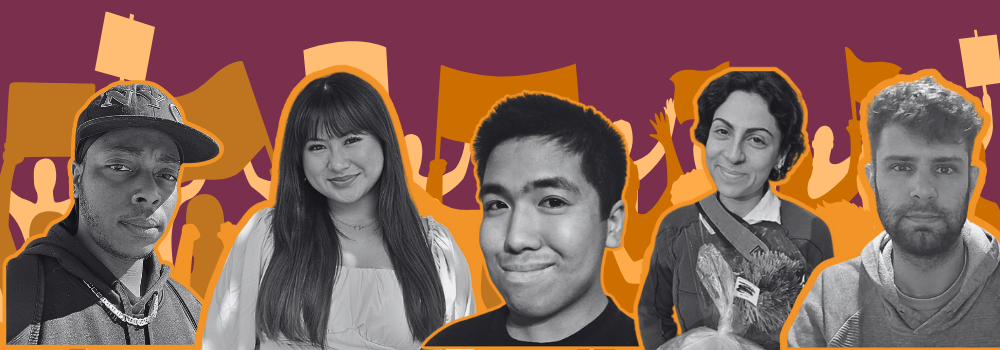
Ana Pena (she/her)
Organization: Northern Manhattan Improvement Corporation (NMIC)
Ana grew up in Brooklyn, NY. She started organizing youth with IntegrateNYC, a youth-led organization that advocated for integration in NYC public schools. She later joined the housing movement working for the 311 Tenant Helpline and volunteering with the Youth Alliance for Housing. Now, Ana is a Tenant Organizer with NMIC.
Angus Fischer (he/him)
Organization: Innovative Resiliance East Briooklyn Village Inc.
Angus Fischer's unwavering commitment to the vibrant borough of Brooklyn, New York, has been a defining aspect of his life. Born and raised in the heart of Brownsville, Angus has seen the city evolve and transform throughout his 34 years of life. His journey of service began in 2008 when he joined the Cypress Hill Local Development Corporation in East New York. Over the years, Angus has demonstrated his dedication to his hometown by taking the initiative to create his own nonprofit organization. This organization's mission is deeply rooted in engaging residents, fostering innovation, and cultivating an environment that promotes self-sustainable growth in and around the East Brooklyn communities. Angus's work is a testament to his vision of a better, more connected, and self-reliant Brooklyn. His journey from his roots in Brownsville to becoming a community leader, activist, advocate, friend, brother, son, neighbor, uncle, father, motivator, and collaborator is a testament to the transformative power of one individual's dedication to their community.
Catherine Kien (she/her)
Organization: Mekong NYC
My name is Cat (she/her), and I am a Vietnamese organizer with Mekong NYC. We serve the Southeast Asian community in the Bronx, and I support our Campaign and Organizing team. I joined the team last spring after graduating from Fordham University with a degree in Urban Studies and Sociology. I am passionate about social justice and empowering our Bronx community. In my free time, I enjoy baking, doing nails, and playing the guitar :)
Jared Watson (he/him)
Organization: Fifth Ave. Committee
Jared is a tenant organizer with Fifth Avenue Committee in South Brooklyn.
Laura Guerrero (she/her)
Organization: Northern Manhattan Improvement Corporation (NMIC)
Laura is passionate about public service. She has been advocating for communities for over 15 years in various capacities. As someone who has a first-generation immigrant background and grew up in the Bronx, she has always thought it essential to position herself in a way that supported people like her family in navigating complex systems to produce results that can support them in living a life closer to the one that they envisioned when they decided to immigrate.
Mark Natanawan (he/him)
Organization: Housing Conservation Coordinators (HCC)
Mark is a tenant organizer with Housing Conservation Coordinators, supporting and empowering groups of tenants and community members across Hell's Kitchen and the Upper West Side. Two years of service in AmeriCorps, promoting affordable housing development and engaging in community outreach to raise awareness of tenants' rights, inspired him to jump into tenant organizing. He graduated in 2020 with a B.A. in International Development from King's College London.
Molly Radwell (any pronouns)
Organization: Urban Homesteading Assistance Board
Molly Radwell lives in their home-city of NY, where they pursue their interest of generating stable, creative, equitable and sustainable communities through many avenues. They work at the Urban Homesteading Assistance Board, supporting affordable housing co-ops and building shareholder power. Previous positions include the US Forest Service Urban Ecology Research Station and the NY League for Conservation Voters on encouraging environmental stewardship and policymaking. Molly coordinates activities for their neighbors, from food distribution at the Collective Focus Hub to their rec soccer team. Outside of these, they can be spotted biking around on food scavenger hunts or making collages.
Sujoy Krishna (he/him)
Organization: Chhaya CDC
A Bangladeshi Hindu immigrant in New York City and a proud resident of Queens, Sujoy brings his decade-long commitment of community empowerment to ANHD! Sujoy is a Tenant Counselor at Chhaya CDC. He is known for his rapid response to crisis and his friendly next door neighbor-like attitude. Before joining Chhaya, he served as a frontline health officer during Covid-19 outbreak in New York City where he led multiple Citywide Emergency field operations for NYC Emergency Management and was recognized by NYC Health Department for his service. For 2020 Census, Sujoy was New York City's youngest full-time Federal Partnership officer appointed by U.S. Census Bureau where he held a leadership role to ensure the complete census count for South Asian & Indo-Caribbean communities. Sujoy is a proud CUNY alumnus & a HASTEC Scholar. Besides Housing Justice, he is also a strong advocate for language accessibility for all. Sujoy is native-fluent in Bangla.
Sign up Form
Meet the Merchant Leaders of the Citywide Merchant Organizing Project
In the summer of 2022, ANHD launched the Citywide Merchant Organizing Project with funding from the NYC Department of Small Business Services and Goldman Sachs Foundation. Over the course of the first year of the program, we worked with seven partner organizations - Asian American Federation, BKLVLUP, Chhaya CDC, Cooper Square Committee, Northwest Bronx Community and Clergy Coalition, Rockaway East Merchants Association, and the Yemeni American Merchants Association - to form merchants associations, develop merchant leaders, and build merchant power against the threats of commercial tenant displacement.
This video series shares the stories of a handful of those merchant leaders, all of them immigrants and/or people of color, and their storefront businesses in East Flatbush, Flatlands, Jackson Heights, Richmond Hill, the Lower East Side, and Kingsbridge. Many of them mention the challenges of opening and maintaining a successful business and the uncertainty of their long-term stability as rents rise, but they also emphasize the importance of the support they receive from organizations like our CMOP partners. With the leadership of these merchants and many more like them, ANHD and our partners continue to organize and advocate for commercial tenant protections.
Casa Adela in the Lower East Side
Casa Adela is a neighborhood institution run by merchant leader Luis Rivera, who took over the Puerto Rican restaurant when his mother passed away. Luis talks about the rising rents in the Lower East Side and what that means for the future of his business. With the help of his community, legal service providers, and organizations like the Cooper Square Committee, Luis was able to fight off a massive rent increase, access funding opportunities, and keep his doors open.
Lucy’s Flower Shop in Kingsbridge
Just down the street from the Kingsbridge Armory in the Bronx, Lucy’s Flower Shop is one among a tight-knit group of long-term businesses who have organized to keep each others’ doors open through challenges that have included untenable rent increases, pandemic shutdowns, and now the city’s third redevelopment attempt of the armory, which is contributing to upward rent pressures. The Northwest Bronx Community and Clergy Coalition is helping to reactivate the local merchants association in order to build the leadership of merchants like Lucy and make sure they are heard in the redevelopment process.
Shangrila of Nepal, Desi Wears, Didi Dukan, Green Boy Fruit & Vegetable, Shivram's Bakery, Rara Group, and Amrit Textiles in Jackson Heights and Richmond Hill
These seven businesses serve the South Asian and Indo-Caribbean communities of Jackson Heights and Richmond Hill. The importance of these businesses–which include a grocery store, a money transfer agency, and a fabric store–cannot be overstated. In a neighborhood of diverse immigrants and languages, local small businesses provide goods and services that residents rely on to maintain their cultural and religious identities. Chhaya CDC works alongside these businesses and many more to make sure they can stay in place and continue serving their communities.
Lips Cafe in East Flatbush
Lips Cafe doesn’t just serve coffee–they serve community. Jamane Weekes co-owns the cafe and community space with his mother, and they anchor their East Flatbush community by hosting events, collaborating with other businesses and local nonprofits, and offering a space for local residents to work and connect. Jamane contributes his leadership and expansive network to BKLVLUP’s merchant organizing work in the neighborhood.
The Eighty 8th Med Spa in Flatbush
Dr. Marie Paul and her three children co-own and operate The Eighty 8th Med Spa, bringing health and beauty treatments to her home community in the heart of Brooklyn and also transferring knowledge and training to develop medical professionals within the neighborhood. As a merchant leader working with BKLVLUP, Dr. Paul helps drive an economic development model that builds community wealth.
Suede in East Flatbush
Managing partner Chasen Hollancind calls Suede a restaurant “by the community for the community,” providing upscale dining in a neighborhood where residents would often have to travel elsewhere to find such options. The journey to become a restaurant and community space, however, required a lot of work navigating city systems and competing against larger, more established businesses. Now, Chasen works with BKLVLUP and helps other entrepreneurs on their own journeys by sharing his experience.
----------------------------------------------------------------------------------------------------------------------
All of these merchant leaders are helping to organize with CMOP partners in addition to doing the work of owning and operating a small business, maintaining a commercial space, and navigating city systems that often don’t work for them. They organize because they recognize the importance of building power together in order to fight displacement, build community wealth, and drive truly equitable economic development.
To learn more about ANHD’s small business work, visit the CMOP page and the USBnyc page on our website. To learn more about the displacement pressures commercial tenants are facing, check out this article in the New York Times. And stay tuned for ANHD’s upcoming report, “The State of Storefronts 2023: Beyond Recovery.”
Sign up Form
Welcome the 2023-2024 ANHD/Morgan Stanley Community Development Graduate Fellowship Cohort
Each year, ANHD pairs nine graduate students with ANHD member organizations for 10 months to work on an impactful community development project in NYC, offering emerging community development leaders key training and support while building the capacity of our organizations. Now entering its 12th year, the Fellowship continues to build leadership and capacity in the community development field, with alumni continuing their commitment to this work through local and national community development organizations, government agencies, think tanks, academic programs, and for-profit organizations.
Our 12th Fellowship cohort will be working on a range of issues including: affordable housing development and preservation, community land trusts, cooperative conversions, and commercial tenant and small business support and organizing.
Meet our 2023-2024 Fellows!
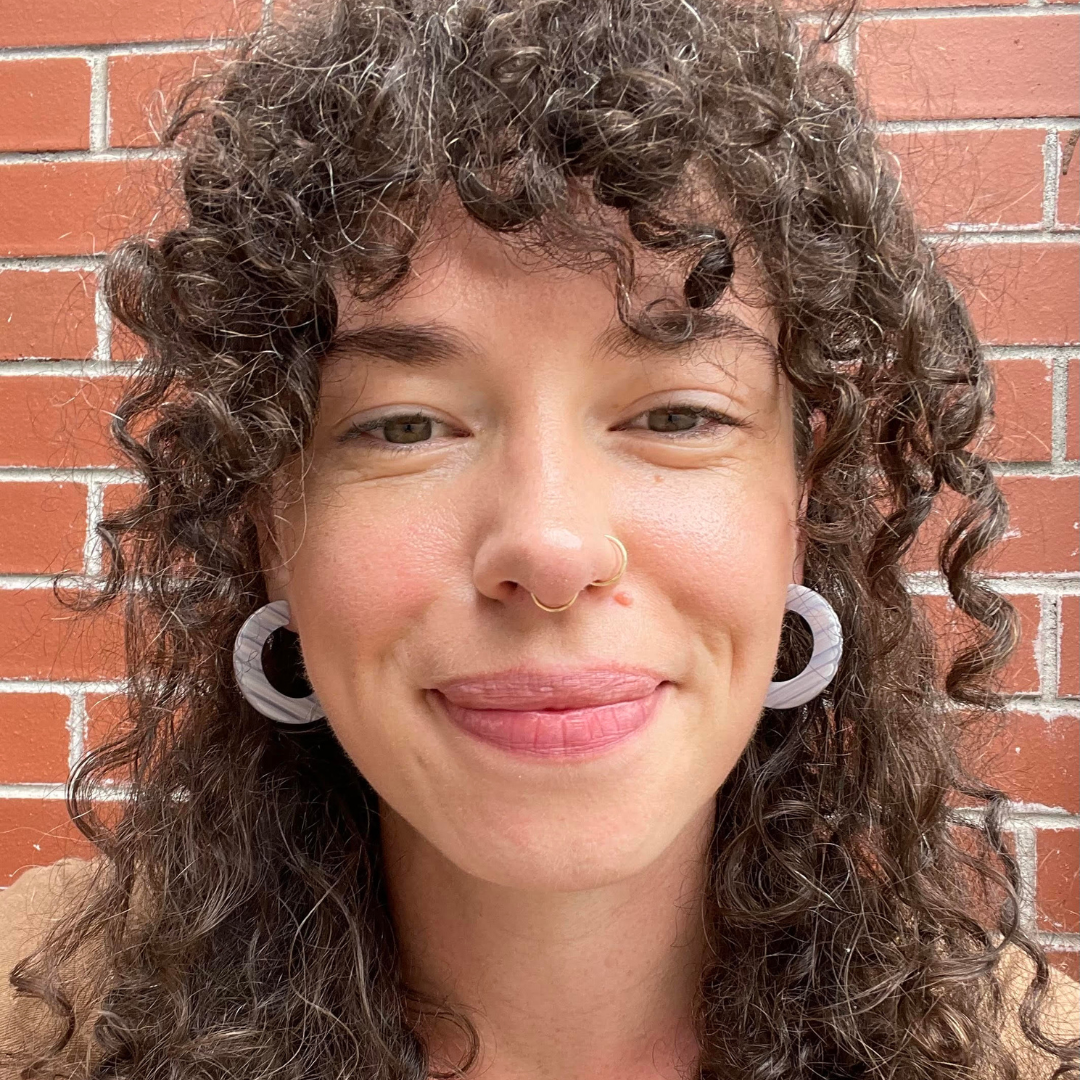
Ashley Thomas (she/her)
The New School
Host Organization: Ascendant Neighborhood Development Corporation
Ashley is a Master of Public and Urban Policy student at The New School Milano. Her graduate studies are focused on community-driven policy interventions and solutions to displacement, neighborhood divestment, and gentrification. Ashley brings to the fellowship years of professional experience working as the Director of Resident Services at a community development corporation in Seattle. She believes community development means strengthening the fabric of neighborhoods in a way that centers the self-determination of community desires and uplifts culturally affirmative social and economic support. The complex issues of the housing crisis cannot be solved by building units alone, and Ashley is eager to co-create innovative strategies to enhance housing, economic, and psycho-social security. She is most interested in approaches that both revitalize and preserve historically divested neighborhoods in ways that avoid replicating the failures of past urban renewal policies and instead, try to heal decades of racialized exclusion. Ashley is honored to work with Ascendant Neighborhood Development to support housing justice in Harlem!
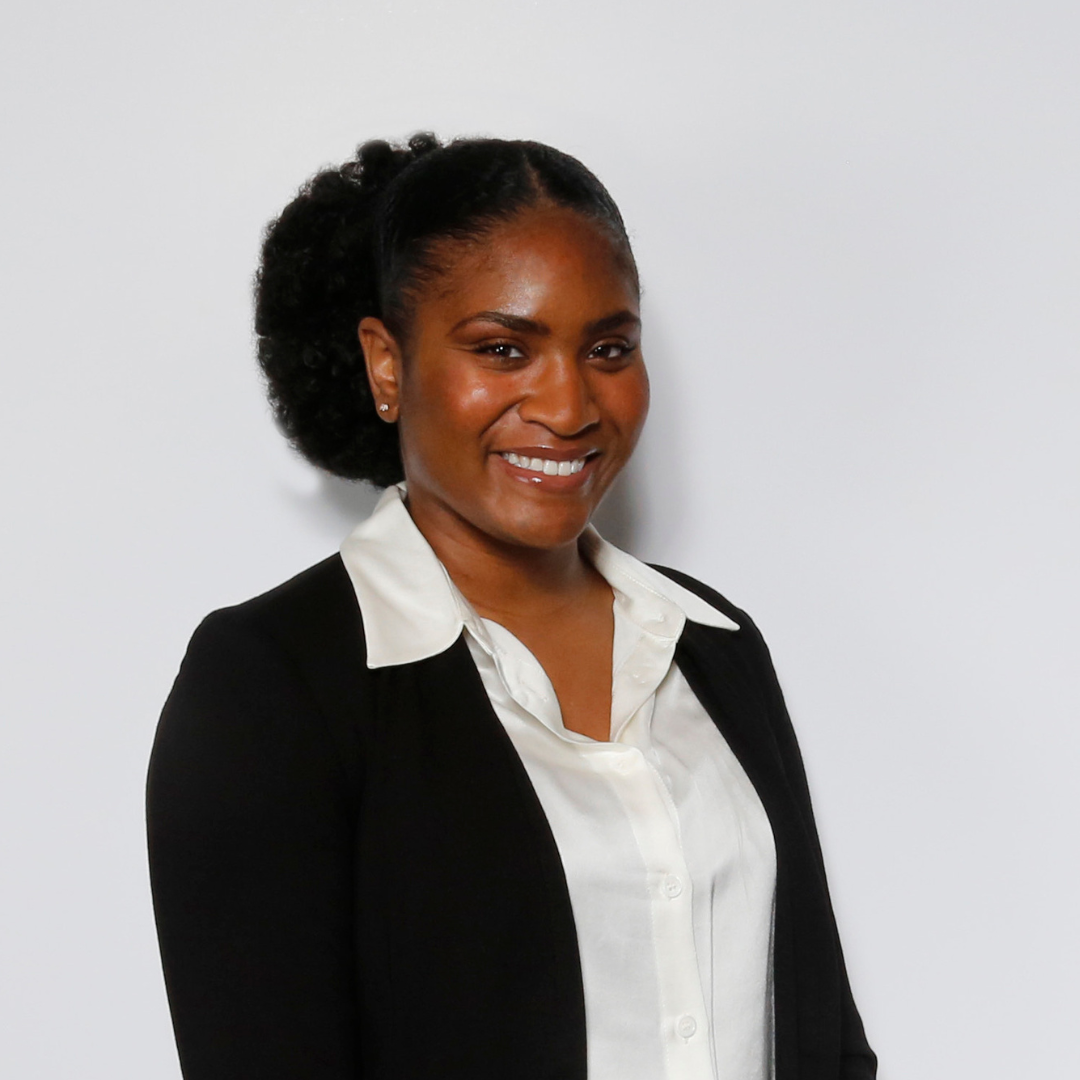 Ceinna Little (she/her)
Ceinna Little (she/her)
New York University Robert F. Wagner School of Public Service
Host Organization: St. Nicks Alliance
Ceinna is a second-year graduate student at the New York University Robert F. Wagner Graduate School of Public Service. She is pursuing a Master of Urban Planning with a specialization in City and Community Planning and has extensive interests in public policy, urban planning, affordable housing, and displacement prevention strategies. Ceinna has past experience working with the Fortune Society, NYU Furman Center, and the NYC Economic Development Corporation, and intends to use the knowledge and experience gained as an ANHD/Morgan Stanley Community Development Graduate Fellow to make direct impacts to halt or slow the devastating effects that displacement has on disadvantaged/communities of color.
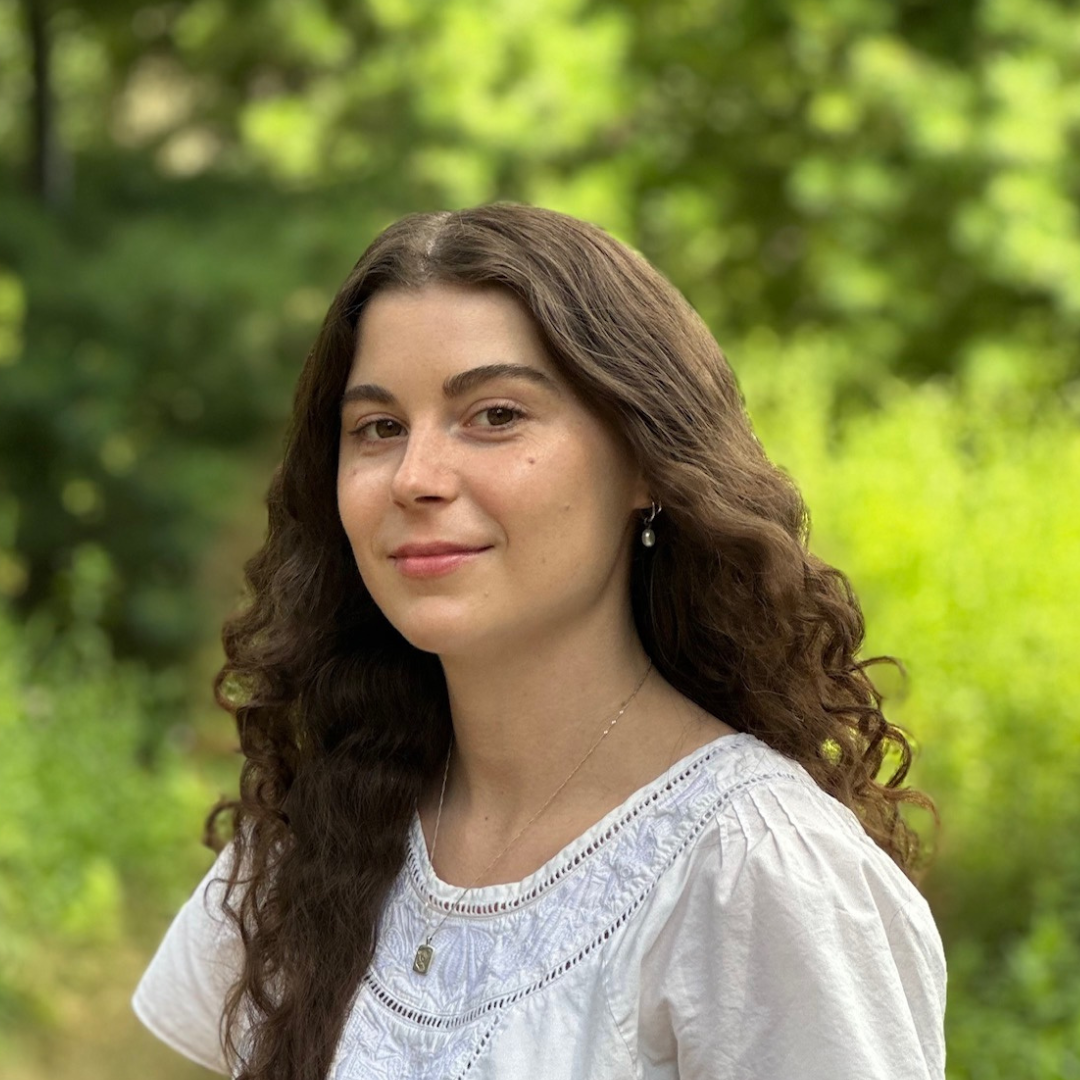 Emily Drane (she/her)
Emily Drane (she/her)
Pratt Institute
Host Organization: Northern Manhattan Improvement Corporation (NMIC)
Emily Drane is pursuing a Master's in Urban and Community Planning at Pratt Institute, inspired by transformative community planning efforts. After almost a decade working in the service industry, she got her bachelor's degree in Sociology and worked in social sciences research before her most recent role with the NYC Department of Housing Preservation and Development. Her work, research, and studies have focused on the community impacts of eviction, gentrification, and affordable housing, where she is most interested in social housing and collective ownership. She remains passionate about realizing a future where housing is not a commodity, but a right, especially for those communities most impacted by harmful housing and urban planning policies. Emily is very excited to be working with NMIC, where she will have the opportunity to learn about achieving empowered housing conditions through cooperative ownership.
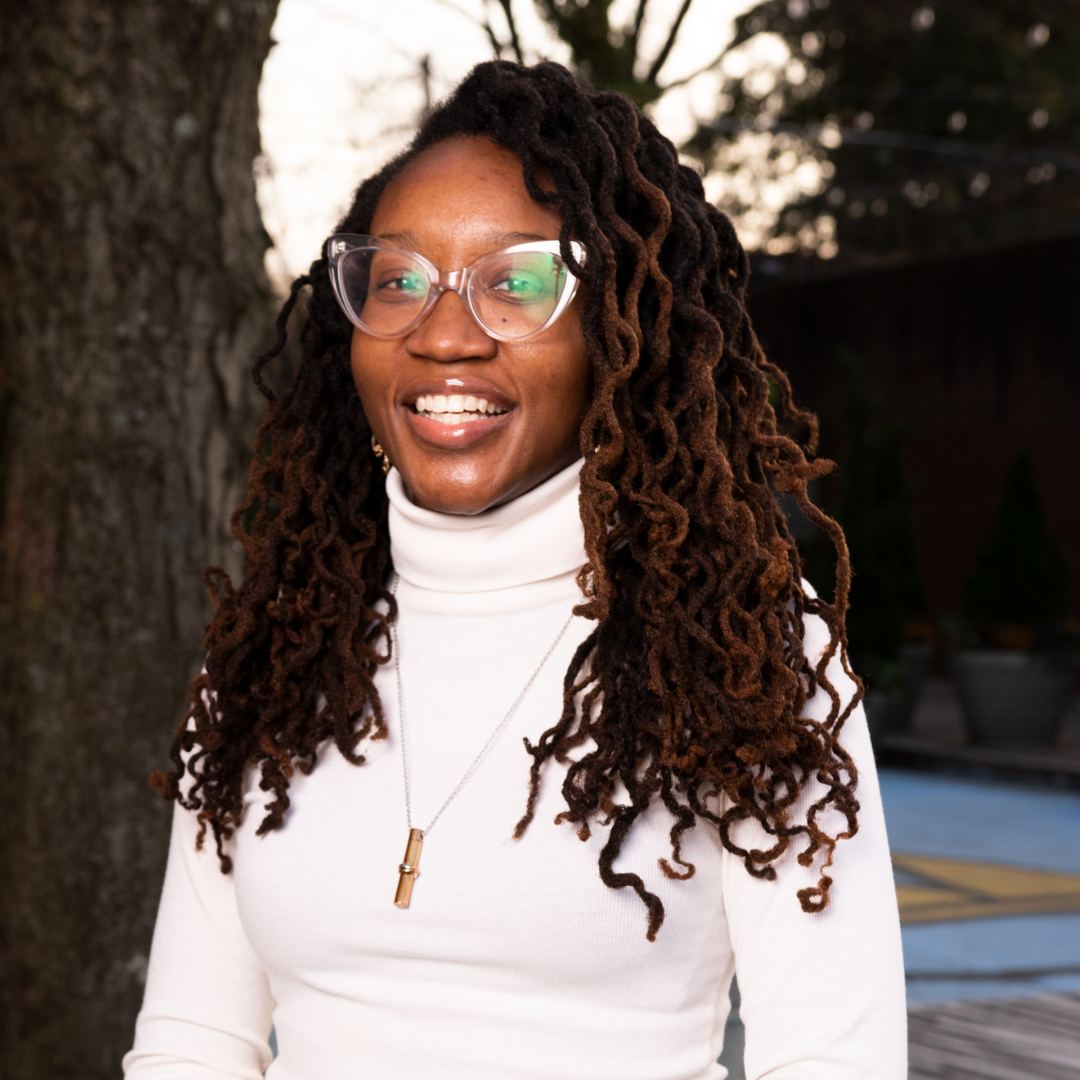 Ivi Lewis (she/her)
Ivi Lewis (she/her)
Hunter College
Host Organization: Hope Community, Inc.
Ivi Lewis is a filmmaker, educator, and activist. Since her young years in her hometown, St. Louis, Missouri, she has always been involved in the community from conducting read-alouds for kindergarten children to harvesting vegetables for local communities. Those experiences lead her to her current position, working directly with young creatives at the Youth Design Center and in her second year as a Master's degree candidate for Urban Planning at Hunter College. Ivi is very excited to be a fellow with ANHD and looks forward to learning from this opportunity.
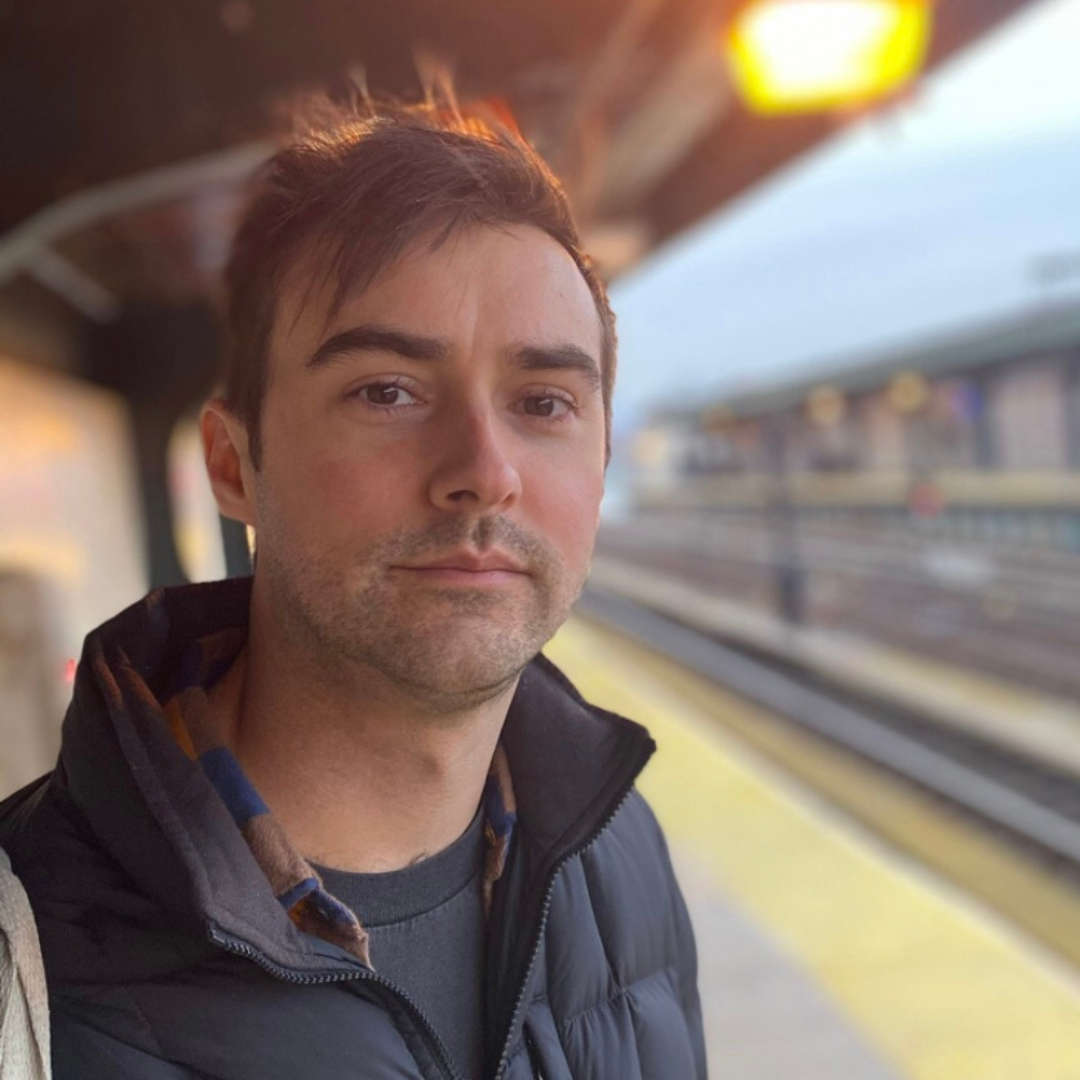 James Colombo (he/him)
James Colombo (he/him)
Hunter College
Host Organization: Banana Kelly Community Improvement Association, Inc.
James Colombo is currently pursuing a master's degree in Urban Planning from Hunter College. He currently works as a Project Associate with Perch Advisors, a consulting firm that specializes in community-focused economic development. He has also been a Project Coordinator with the Brooklyn Waterfront Research Center, a research and education center in the New York City College of Technology (City Tech). He is interested in working towards developing cities that are affordable, sustainable, and produce just outcomes for all communities. He has a B.A. from Seattle University and was born and raised in southeastern Michigan.
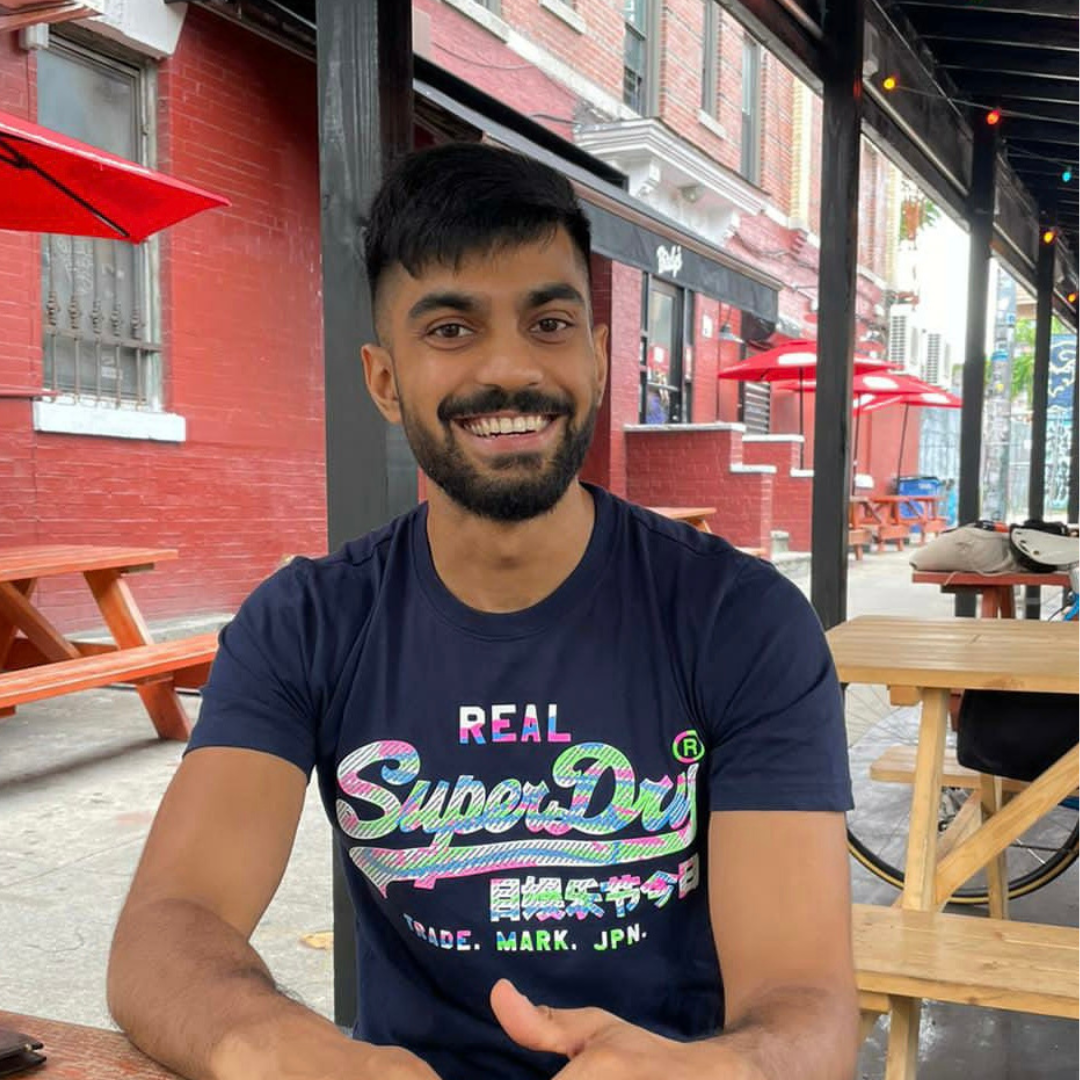 Kedar Nagarajan (he/him)
Kedar Nagarajan (he/him)
Rutgers University
Host Organization: Center for New York City Neighborhoods, Inc.
Kedar Nagarajan is a student of Urban Planning and Critical Geographies at Rutgers University. He has five years of professional experience across three of India's largest cities Bangalore, Bombay and New Delhi where he has worked first as a journalist, and then as a mixed-methods academic research assistant focusing on displacement due to financialization and large scale infrastructural developments.
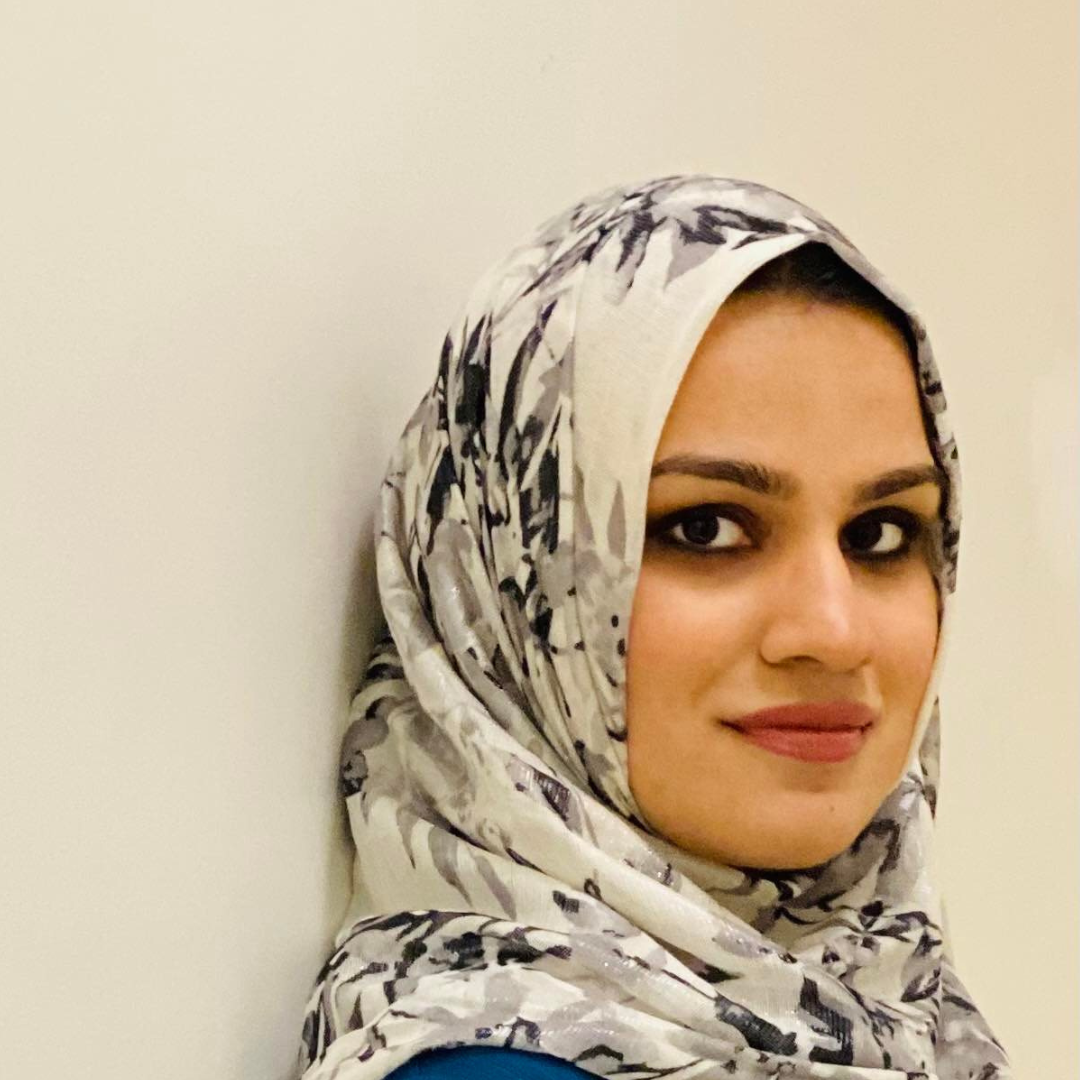 Nashia Basit (she/her)
Nashia Basit (she/her)
Rutgers University
Host Organization: Northwest Bronx Community & Clergy Coalition
Nashia Basit is a dual Master of Public Policy/Master of City and Regional Planning candidate with a focus in social policy and community development at the Edward J Bloustein School of Planning and Public Policy at Rutgers University. She is currently interning with the Legislative Affairs Office in the Governor's Office. She is an Eagleton Graduate Fellow and serves on the executive boards of the Women's Leadership Coalition and the Bloustein Social Justice Committee at the Bloustein School. Her previous work experiences include the Lionheart Foundation, Environmental Analysis and Communications Group, Alan M Voorhees Center, Center for American Women and Politics, and the Department of Children and Families. She graduated from Rutgers in 2020 with dual degrees in Political Science and Communication with certificates in Women's Leadership/Social Change and American Politics and Policy and was a Leadership Scholar at the Institute for Women's Leadership and an Undergraduate Associate at the Eagleton Institute of Politics and Ralph Voorhees Fellow for Public Service. She is passionate about expanding opportunities for underserved communities through the implementation of new social safety net programs.
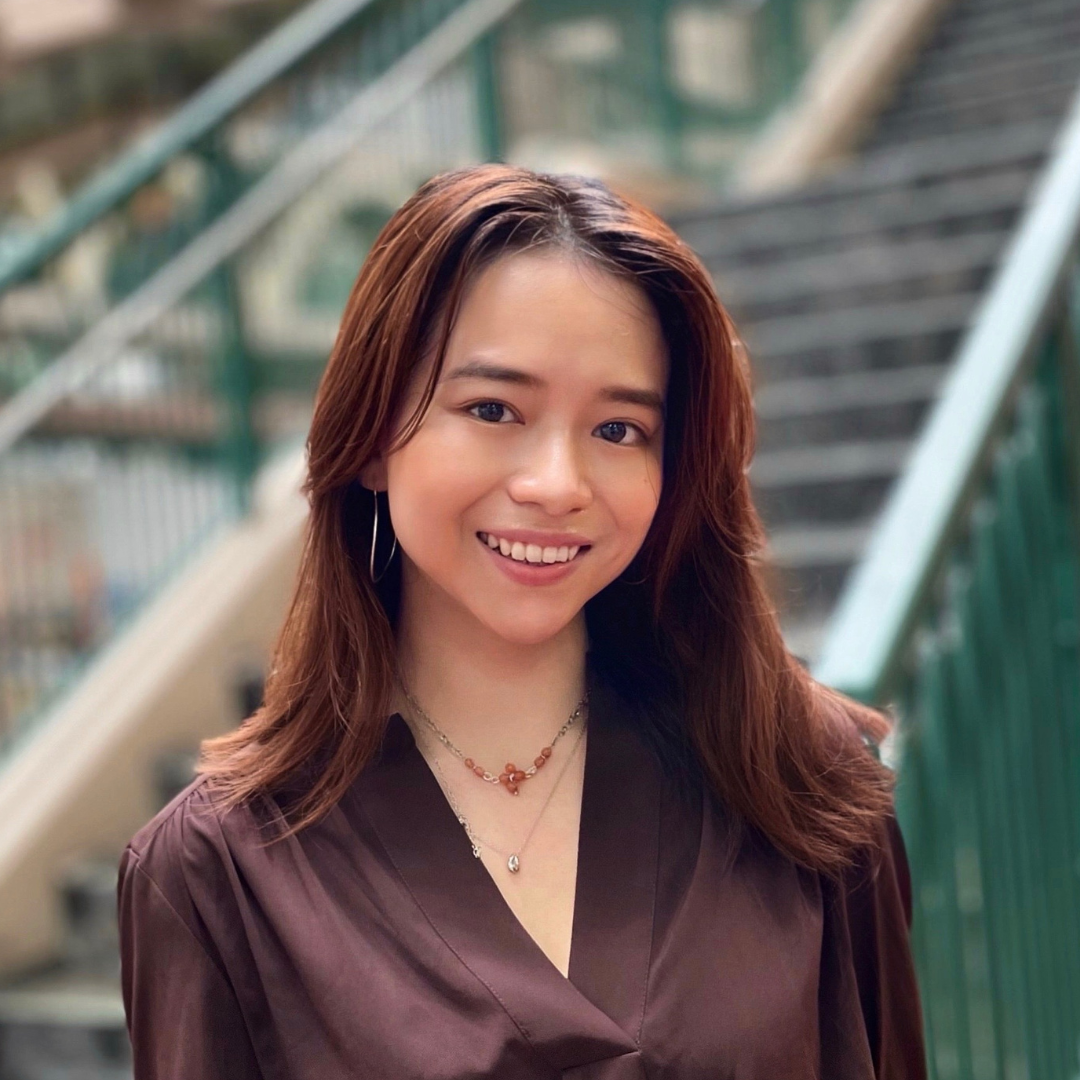 Shannon Hui (she/her)
Shannon Hui (she/her)
Columbia University
Host Organization: Cooper Square Committee
Shannon Hui is a Master of Urban Planning student at Columbia University GSAPP, with a background in Architecture and Psychology, and Public Health. As a designer at heart, she is energised by the exploration of interdisciplinary and multi-scalar urban mediations that center meaningful inclusion and equity. She has designed an award-winning proposal to reimagine the Brooklyn Bridge, advocated for affordable housing as a Norman Foster Foundation Scholar, and conducted research on the health outcomes of architectural practices for an international non-profit organisation. These experiences have oriented her toward a systems-thinking approach to intersectional placemaking, sensitive to the immense value of community-driven design and programming. Whilst born and raised in Hong Kong, her perspective of the built environment has been nurtured by New York City. She is excited to uplift the Cooper Square Committee’s Small Business, Tenant Organising, and Public Space Activation programs tailored to the diverse communities of the East Village and Lower East Side, with a commitment to building relationships centered on mutual care, trust, and wellbeing.
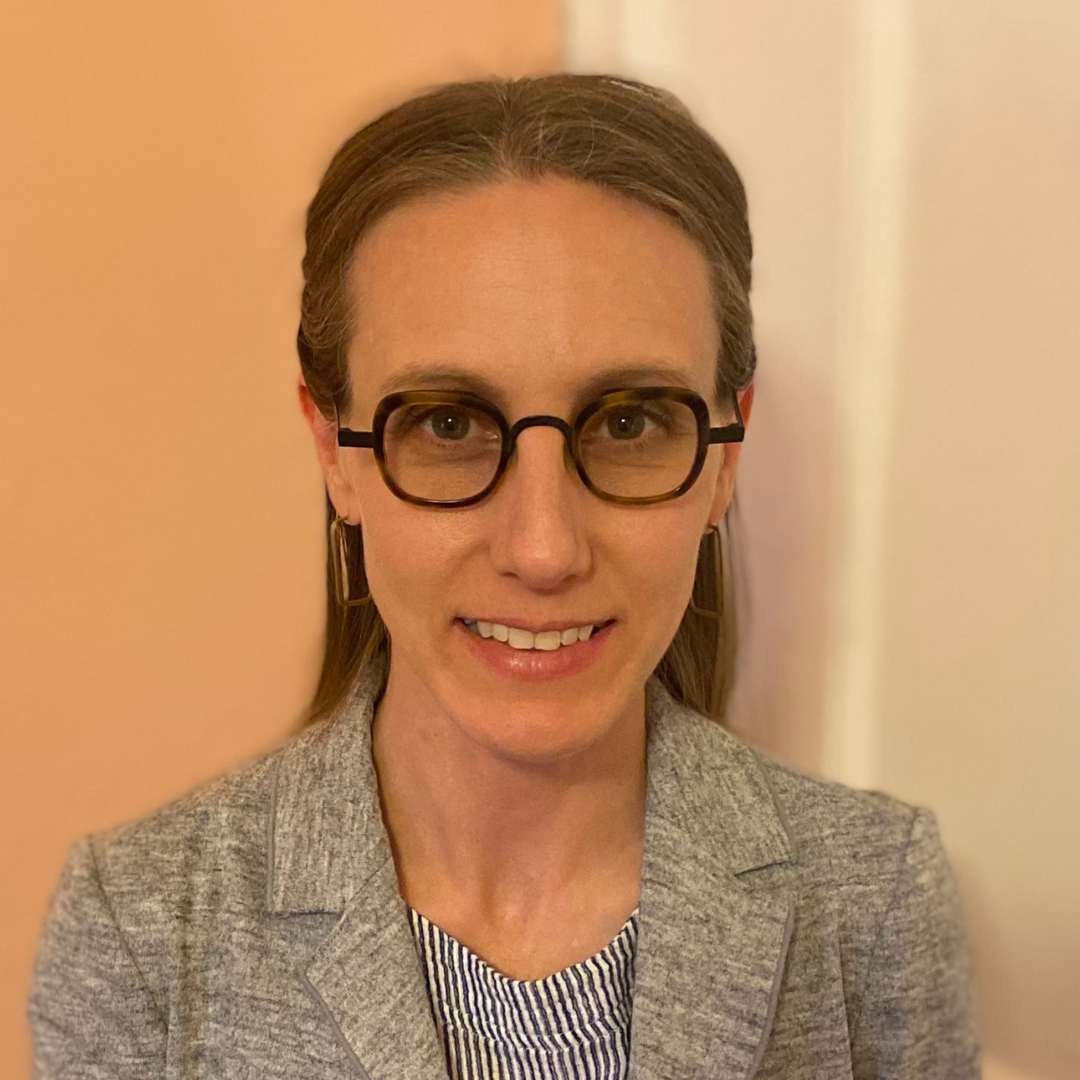 Stacie Johnson (she/her)
Stacie Johnson (she/her)
Hunter College
Host Organization: Cypress Hills Local Development Corporation
Stacie Johnson is a Master of Urban Policy student at Hunter College. Her interest in cities and housing grew out of her experience as a rent-stabilized tenant in Bushwick and from volunteering in the movement for housing justice with groups such as the Ridgewood Tenant Union, the Brooklyn Anti-gentrification Network and Housing Justice for All. Stacie has embraced hyper-local governance structures by serving as an elected member of the Community Education Council for NYC school district #32 in Bushwick and the Democratic Party's County Committee for Kings County. She has a background in studio arts, taught painting and drawing at the college level for 5 years, and was a co-founder of Regina Rex, a 13-member curatorial project that produced over 50 exhibitions and events from 2010-2014. Making a full transition to urban policy, Stacie is currently a Community Liaison in the office of State Senator Brian Kavanagh. Her graduate research is focused on how housing policies shape communities and vice versa. She is motivated by a bottom-up approach to policy-making and wants to participate in creating a more equitable and sustainable future. She is excited to work with Cypress Hills Development Corporation and the communities of East New York.
Sign up Form
ANHD Statement on Signature Bank’s Closure
Signature Bank’s collapse comes as no surprise to the Association for Neighborhood & Housing Development (ANHD), who has long called out their faulty business model, which relied on predatory and speculative activities in New York City. Signature paved the way for thousands of tenants to suffer living in unsafe conditions, the victims of harassment, or displaced from their homes and communities. ANHD applauds the New York Department of Financial Services (DFS) for taking the significant and necessary steps of closing Signature Bank — marking the third largest bank failure in US History, with nearly $200 billion in assets and deposits in 2022.
ANHD and our Equitable Reinvestment Committee (ERC) have raised the alarm on Signature Bank’s practices for years, especially their long-standing core business practice of making multifamily loans to bad acting landlords. Year after year, building after building, Signature consistently made multifamily loans that were speculative and underwritten to practices of displacement, harassment, or building neglect.
After a two-year campaign led by tenant organizers and tenants living in buildings financed by Signature Bank, the bank formally and publicly adopted ANHD’s multifamily lending best practices in July 2018. NY State’s Department of Financial Services issued similar guidance to all state-chartered banks, including Signature, just a few months later. Unfortunately, in the more than four years since that pledge, Signature Bank had yet to fully live up to its commitments and often fought back against doing so.
The flags were there. ANHD and the ERC submitted detailed comments with data and testimony about Signature’s lending to landlords with public records of tenant harassment and poor conditions. We called on the regulators to downgrade Signature for their behavior and urged the bank to better address their systemic issues. Yet, just four out of 344 loans were submitted, with no consequences for financing any of the bad acting landlords they recognize as problematic. ANHD highlighted that Signature Bank failed two of their four Community Reinvestment Act (CRA) assessment areas, failed three of 12 sub-tests, and barely passed in most other subtests with a “low-satisfactory.” Despite this, Signature was rated “Satisfactory” overall and passed their March 2022 CRA exam.
ANHD is pleased to see that state and federal regulators transferred all the deposits and substantially all of the assets of Signature Bank to Signature Bridge Bank, N.A. We look forward to working with State and Federal regulators to ensure that tenants’ homes are protected and affordability is preserved - especially in the midst of a housing crisis, and on the edge of an eviction tsunami. We can not allow another financial institution to take control of loans and continue Signature’s practice of predatory lending.
Signature Bank’s closure is an opportunity for financial institutions and regulators alike to revisit and reexamine their existing practices. Signature shows us how and why predatory, risky, and destabilizing practices must end! The cost of these harmful practices falls on our low-income tenants that are priced out of their homes and our neighborhoods that are destabilized by neglected buildings, rapidly rising rents, and high tenant turnover. Our low-income communities of color should not bear the price of financial institutions' misguided, ill-informed, profit-only practices. We must hold banks accountable.
The CRA is being updated for the first time in over 20 years. Signature Bank reminds us that we have an opportunity to Strengthen the CRA. We need a CRA that is race-conscious, downgrades banks for lending to landlords that harm and displace tenants, & strengthens community input.
Sign up Form
ANHD’s Equitable Development Data Explorer Training Modules

Sign up
ANHD's Year in Review: 2022 Top Moments
Donate to ANHD Now
ANHD is a leading voice in New York City’s community and economic development sectors, with nearly 50 years of experience in the field. In 2022 we expanded our impact and reach at the local, state and federal levels, and we are excited to share some of our top moments with you.
As you will read, ANHD’s work for and in collaboration with our 80+ members, and with the support of funders and government partners, has led to new ways we work as a city towards affordable housing goals, new on-ramps and support for professional organizers, new programs that stabilize and uplift merchants in COVID-hard hit neighborhoods, and so much more.
ANHD is proud of our growth internally and externally. We hope you will join us in celebrating the incremental and monumental changes we’ve helped advance and consider how we can continue driving change together in 2023.
- Make an individual, flexible donation to ANHD or one of our members.
-
Support programmatic endeavors we’re leading.
-
Join us in crucial conversations that help us work towards housing, economic, and racial justice.
Together we can #BuildCommunityPower and advance thriving equitable communities that support all New Yorkers.
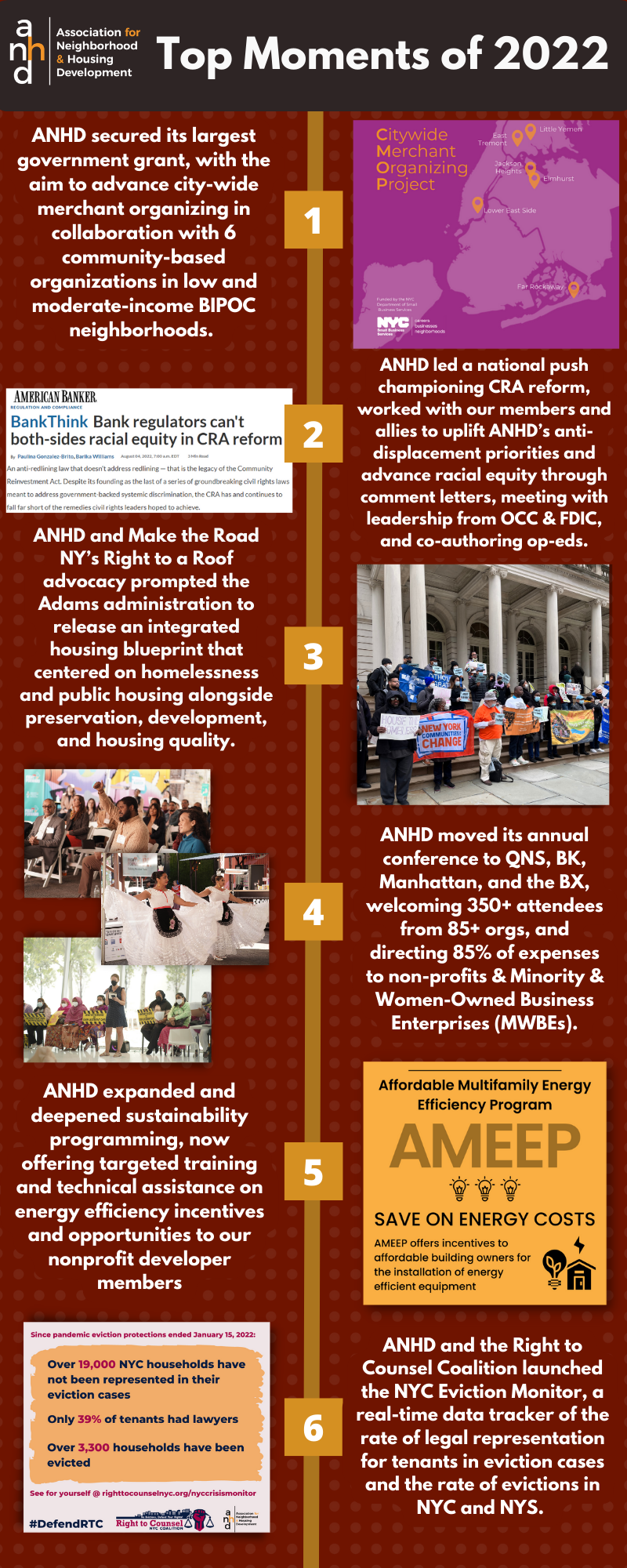
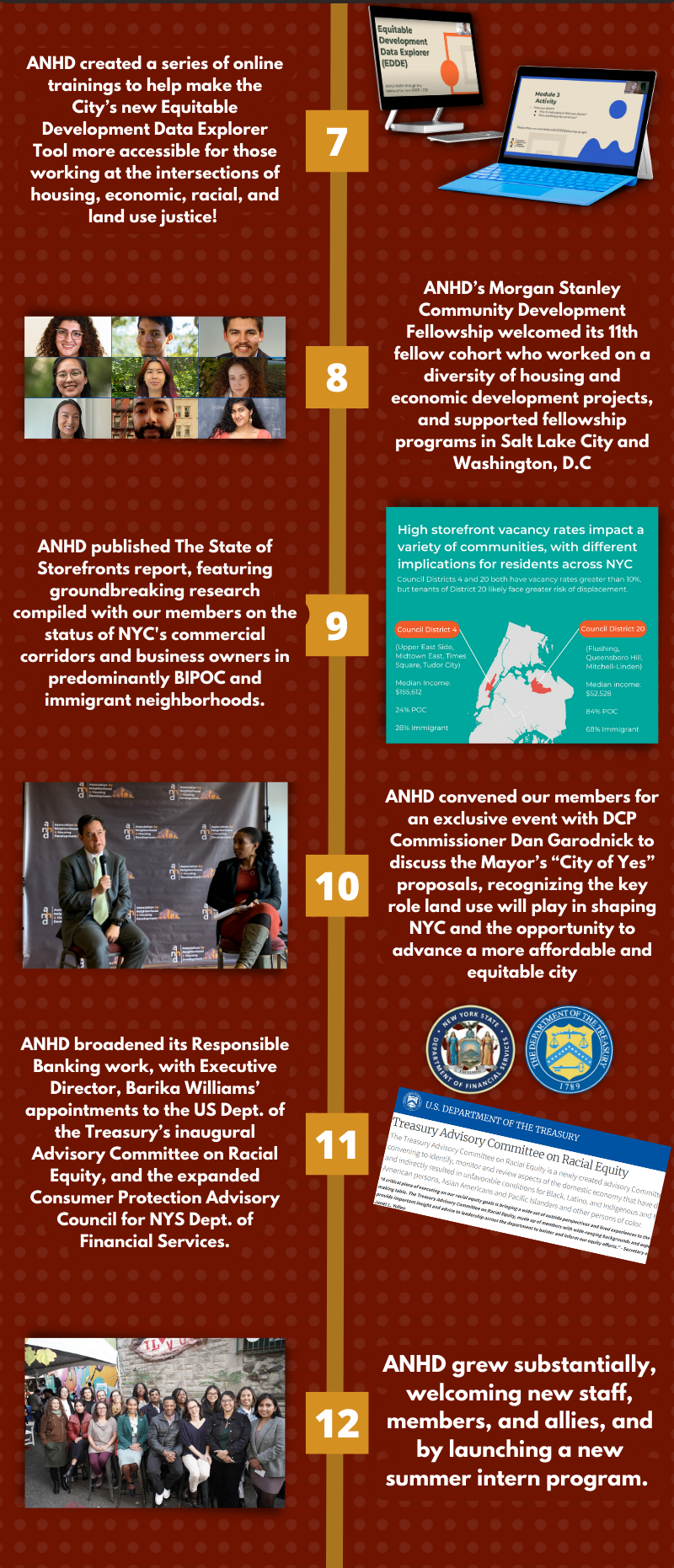

ANHD's TOP MOMENTS OF 2022
- ANHD secured its largest government grant, with the aim to advance city-wide merchant organizing in collaboration with 6 community-based organizations in low and moderate-income BIPOC neighborhoods.
- ANHD led a national push championing CRA reform, working with our members and allies to uplift ANHD’s anti-displacement priorities and advance racial equity through comment letters, meeting with leadership from OCC and FDIC, and co-authoring pivotal op-eds.
- ANHD and Make the Road NY’s Right to a Roof advocacy prompted the Adams administration to release an integrated housing blueprint that centered on homelessness and public housing alongside preservation, development, and housing quality.
- ANHD moved our annual conference series and centered it in Queens, Brooklyn, Manhattan, and the Bronx, welcoming 350+ attendees from 85+ organizations, and directing 85% of our expenses to non-profits and Minority and Women-Owned Business Enterprises (MWBEs).
- ANHD expanded and deepened sustainability programming, now offering targeted training and technical assistance on energy efficiency incentives and opportunities to nonprofit developer members.
- ANHD and the Right to Counsel Coalition launched the NYC Eviction Monitor, a real-time data tracker of the rate of legal representation for tenants in eviction cases and the rate of evictions in NYC and NYS.
- ANHD staff created a series of online training workshopss to help make the City’s new Equitable Development Data Explorer Tool more accessible for those working at the intersections of housing, economic, racial, and land use justice.
- ANHD’s Morgan Stanley’s Community Development Fellowship welcomed its 11th fellow cohort to work on a diversity of housing and economic development projects, and we supported fellowship programs in Salt Lake City and Washington, D.C.
- ANHD published The State of Storefronts report, featuring groundbreaking research compiled with our members on the status of NYC's commercial corridors and business owners in predominantly BIPOC and immigrant neighborhoods.
- ANHD convened our members for an exclusive event with DCP Commissioner Dan Garodnick to discuss the Mayor’s “City of Yes” proposals, recognizing the key role land use will play in shaping NYC and the opportunity to advance a more affordable and equitable city.
- ANHD broadened the impact of our Responsible Banking work, with Executive Director, Barika Williams’ appointments to the US Department of the Treasury’s inaugural Advisory Committee on Racial Equity, and to the expanded Consumer Protection Advisory Council for New York State Department of Financial Services.
- ANHD grew substantially, welcoming new staff, members, and allies, and by launching a new summer intern program.
- ANHD successfully piloted our organizer Apprenticeship Program as part of the Center for Community Leadership, and we continue to actively rethink how we support community organizers, across all experience levels, in this challenging moment.
- ANHD hosted the Council School to inform incoming council members and senior staff during an unprecedented turnover in NYC’s political transition. Electeds and staff from 24+ districts learned about land use and affordable housing development and principles that can advance justice and equity.
- ANHD’s partnership with NCRC led to a major win in a Federal ruling to overturn Trump-era regulation that had exempted financial institutions from reporting mortgage lending data that is necessary to help combat redlining and other fair lending violations.
- ANHD supported member organization RiseBoro Community Partnership, as they successfully defended their federal Right of First Refusal case, allowing mission-driven developers near and far to have a fair chance in fully owning their affordable housing stock.
- ANHD produced critical education materials and trainings to inform the sector on issues like affordable housing, small business, industrial development, land use, responsible banking. New this year was an in-depth analysis of how AMI is calculated and hurts NYC's affordability levels.
- ANHD’s convening of and support for its Equitable Reinvestment Committee (ERC) helped form a new mobile credit union for underbanked communities; prevented a bank closure in the Bronx; and led to the introduction of a new bill, H.R. 8833, at the Congressional level referencing ANHD's CRA reform priorities.
Sign up Form
ANHD and Six Neighborhood Partners Launch Citywide Merchant Organizing Project
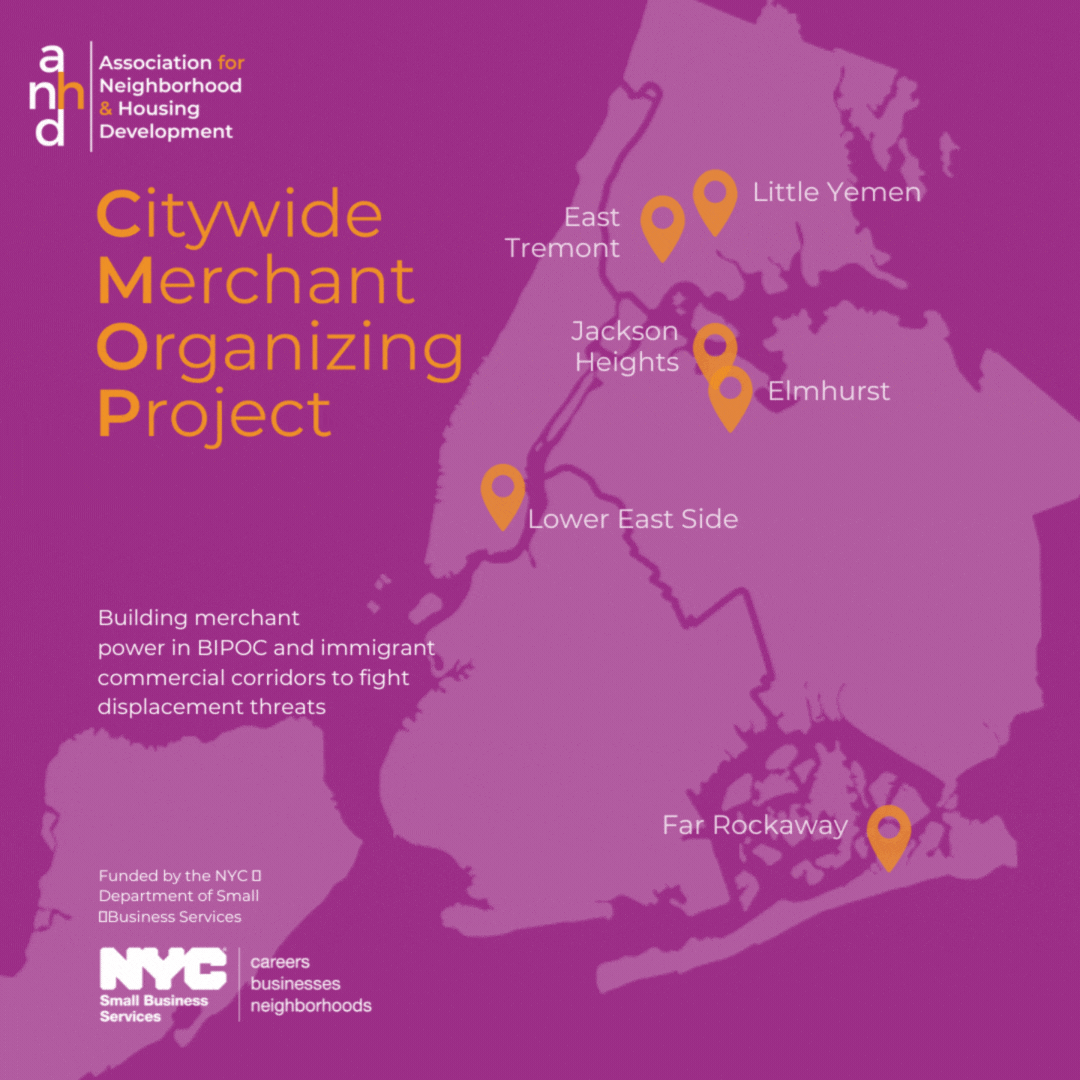
This #SmallBizSat, ANHD is highlighting the importance of merchant organizing in strengthening the stability of New York City’s commercial corridors and preventing the displacement of culturally relevant small businesses and local jobs. Through the Citywide Merchant Organizing Project (CMOP), ANHD and our partners are working toward increased merchant organizing coordination and collaboration among neighborhoods and a stronger citywide base of merchants ready to fight against displacement threats.
With funding from the New York City Department of Small Business Services, ANHD and six partners are working across neighborhoods to coordinate merchant organizing efforts along commercial corridors in low- to moderate-income neighborhoods that are also home to communities of color and immigrants.
- Asian American Federation in Elmhurst, Queens
- Bronx Cooperative Development Initiative in East Tremont, the Bronx
- Chhaya CDC in Jackson Heights, Queens
- Cooper Square Committee in the Lower East Side/East Village, Manhattan
- REMA4US in Far Rockaway, Queens
- Yemeni American Merchants Association in Little Yemen, the Bronx
These organizations provide critical support services to keep small businesses alive–such as facilitating access to capital and navigating bureaucratic systems–but they also engage merchants in leadership development opportunities, create avenues for collective action, and build merchant power against the threat of small business displacement. They’ve been supporting small businesses such as:
- Alfakhamah, Yemeni boutique, 855 Morris Park Avenue, the Bronx
- Sabor a Mexico, Mexican restaurant, 160 1st Avenue, East Village
- Nepali Bhanchha Ghar, Nepali restaurant, 74-15 Roosevelt Avenue, Jackson Heights
- Purrfect Pets, pet store, 1914 Mott Avenue, Far Rockaway
- Boba Fries, restaurant, 81-21 Broadway, Elmhurst
- Yusuf Fabrics, fabric store, 37-24 74th Street, Jackson Heights
- Jontue Discount Boutique, clothing store, 1825 Mott Avenue, Far Rockaway
- Y Tech Corp, tech repair shop, 1801 White Plains Road, the Bronx
- Ricky's Cafe, restaurant, 75-02 37th Ave, Jackson Heights
To support merchant organizing in these neighborhoods, ANHD is providing tools, resources, and technical assistance to these six partner organizations. One of the primary tools organizers are using to engage merchants is a merchant survey co-designed with organizers and merchant leaders to gather quantitative and qualitative data about how New York City’s small businesses have been impacted by rising commercial rents related to speculation and gentrification. Over the next seven months, we will be administering the survey with merchants in these six neighborhoods and undertaking other research efforts in order to assess challenges related to rent burden, lease negotiation, and landlord harassment among small businesses.
Since the beginning of the COVID-19 pandemic, small businesses have faced increasing displacement threats as they lost revenue, accumulated back rent, and faced rising rents. Read ANHD’s State of Storefronts report to find out more about trends in storefront vacancies and commercial rents that indicate New York City’s ethnic enclaves and neighborhoods where people of color live might be at risk of small business displacement. For example, Council Districts where storefront rents increased from 2019 to 2020 are home to 71.2% people of color, versus 42.0% people of color in Districts where rents decreased.
Through CMOP, the additional data collection alongside coordinated merchant base building and leadership development will provide the foundation for confronting these issues through education and advocacy.
Follow @ANHDNYC and our hashtags #SmallBizSatNYC and #BuildMerchantPower to learn more about the merchants who run these businesses and the organizing work our partners are doing with them.
Sign up Form
ANHD and the Right to Counsel Coalition Release New NYC Eviction Crisis Monitor
Note: this blog was originally published October 27, 2022, and updated November 1 with numbers reflecting an adjustment in our methodology. The numbers now reflect how many eviction cases have representation after two scheduled appearances instead of one, a more conservative estimate. For more information, contact Lucy.B@anhd.org.
In response to the crisis unfolding in New York City's housing courts this year, ANHD and the Right to Counsel Coalition launched a new website today, the NYC Eviction Crisis Monitor. Since pandemic eviction protections expired on January 15, 2022, tens of thousands of tenants have gone without legal representation in their eviction cases. Most of them are eligible for Right to Counsel, but cases are proceeding too fast for the number of legal services providers and the courts are allowing them to move forward. This means that tenants are not getting the attorneys they are entitled to. Reports have shown that 84% of tenants with Right to Counsel get to stay in their homes; the fact that most are not getting representation is unconscionable. Read more in today's The City article covering this work.
Our data analysis found that since January 15, after two scheduled appearances:
- Over 15,000 New York City households do not have representation in their eviction case
- Only 39% of tenants have legal representation
Additionally, over 2,600 households have been evicted, and the number is increasing daily. See the second chart for the most recent numbers.
Click this link to go to DAP Portal and see a map of where tenants have been evicted across New York City since protections expired!
You can take action by joining the Defend Right to Counsel campaign. You can sign up for RTC email updates here. For resources and a guide on how to fight your eviction case if you are unrepresented or were denied Right to Counsel, click here.





